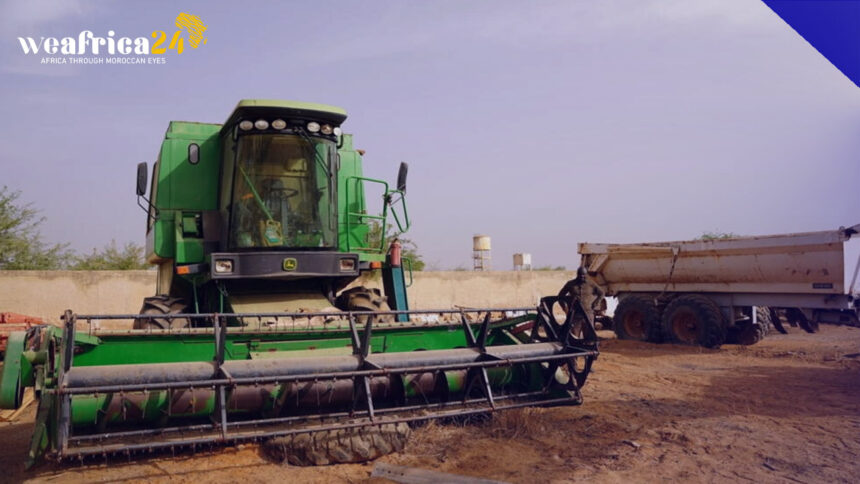As Senegalese citizens prepare to cast their votes on February 25th to elect a new president, our correspondents traverse the country, engaging with communities to understand their concerns. In the fertile and agriculturally rich region of the Senegal River Valley in the North, the challenges posed by climate change take center stage. While the area traditionally supports the presidential majority, the agricultural community is determined to voice its grievances on farming issues.
Nestled against the Senegal River and the irrigation canals where sugarcane thrives, Richard Toll is a city characterized by water and agriculture. The region is renowned for the large sugar company, CSS, established in the 1970s, employing up to 8,000 people during the campaign season. Many youths aspire to manual jobs offered by the company, such as sugarcane harvesting.
Rice cultivation is also pivotal for achieving food self-sufficiency in a country where a significant portion of this cereal is still imported. However, despite promises from the president, this goal remains elusive.
Rice farming relies on the benefits of river irrigation. However, in recent years, climate change has brought excessive water during the rainy seasons, resulting in losses for producers. Ousseynou Ndiaye, president of the Rice Interprofessional Committee, laments, “Early rains lead to the germination of mature seeds, causing difficulties in soil work. Increased temperatures also reduce germination, lowering productivity.” Ndiaye estimates losses from the last season at 9 billion CFA francs, equivalent to 13 million euros.
While some farmers accessed public funds to purchase combine harvesters, these machines are no longer efficient. Rice growers now require crawler harvesters to work on wetlands.
A Region Loyal to the Presidential Majority
In addition to rice, the region produces tomatoes, onions, yams, and sweet potatoes along the shores of Lake Guiers. Farmers in these sectors also feel the impact of climate change. Moustapha Gueye, a tomato farmer, notes, “The seasons have changed a lot. Planning crops is challenging. We now experience unexpected heat, and diseases prevail at any time.”
All farmers are currently grappling with a fertilizer shortage. Gueye explains, “So far, some people have not received fertilizers. Only beneficiaries of the agricultural bank have received a small amount.” Fertilizer suppliers attribute the scarcity to unpaid state debts. Farmers also complain about difficulties in accessing credit.
Politically, President Macky Sall’s coalition, Benno Bok Yakaar, holds sway in the two major cities of the department. Amadou Mame Diop, Mayor of Richard Toll and President of the National Assembly since October, assures the ruling party’s victory, stating, “We have always won in this department.” Dagana is governed by Oumar Sarr, Mines Minister, who, despite having his party, is also part of the Benno Bokk Yakar coalition. Presently, the agricultural challenges in the region have not altered local political dynamics







